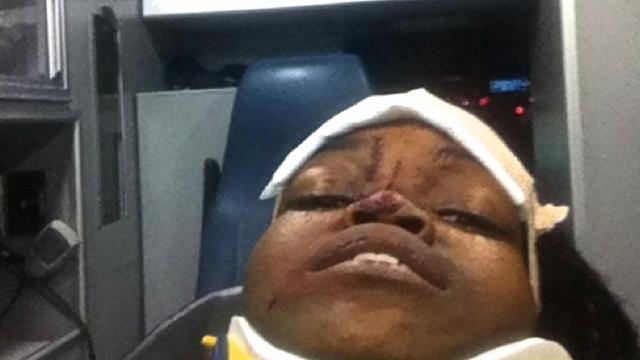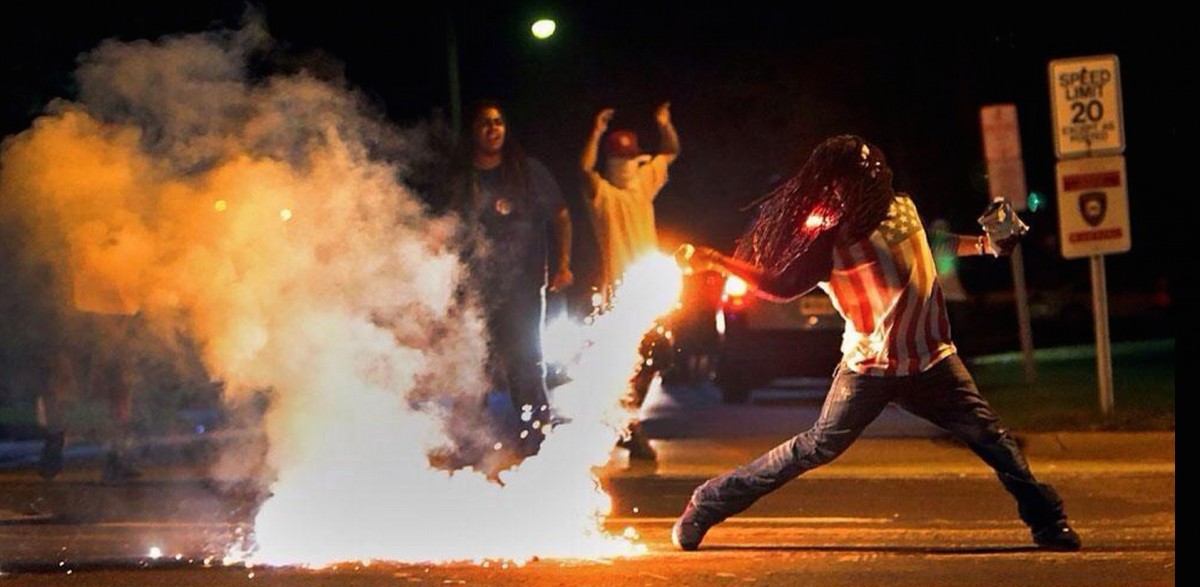
In Ferguson, Missouri this week, the public has turned the notion of “see something, say something” back on the state, via a digital tool of enormous power: online pictures and video.
Their efforts – which began days before reporters descended when Twitter user @TheePharaoh posted pictures immediately after a police officer killed an unarmed black teenager, Michael Brown – have helped bring international attention to both Brown’s death and law enforcement’s disproportionate response to the ensuing protests.
Antonio French, an alderman in nearby St. Louis, spent days posting to Twitter pictures and a series of videos of the demonstrations and police actions that he captured on his mobile phone – and was reportedly arrested and then released on Wednesday evening. He is a citizen journalist of the best kind: a credible witness who has helped inform the wider public about a critical matter.
Can anyone plausibly doubt that he and the two professional journalists who were briefly taken into custody after police demanded they stop recording were targeted because they were documenting law enforcement actions?
(Note: Missouri Gov. Jay Nixon declared a state of emergency and set a midnight curfew on the city this weekend as conflict between protesters and the police continued.)
Ferguson isn’t the first example of this kind of citizen journalism, which has been going on for years in any number of other places including Iran, Egypt, Occupy Wall Street and Syria. But the videos, blog posts, tweets, and photos from French and others on the ground have complemented the work of the traditional journalists on the scene – and have reminded us of what is becoming a civic duty in today’s America.
It’s a sad comment on the state of law enforcement, but I now encourage people who see the police doing something that seems out of the ordinary to document it with pictures or video and save it (if not post it online). I say that reluctantly, because law enforcement is not, per se, our enemy: “To protect and serve” is deeply honorable motto, and communities are vastly better off where it is followed in good faith.
But law enforcement today too often violates the civil liberties of those they are sworn to protect, and the increasing militarization of American law enforcement (an offshoot of the Wars on (Some) Drugs and Terror) is poisoning the trust of many citizens. (For others, particularly in minority communities who have borne the brunt of the “broken windows” model, that trust died long ago.).
Video and pictures are an equalizer: they’re not the only ones, and most of the power remains with the state, but they can be essential tools to help restore some balance in a system that, in recent years, has tilted in favor of those who interpret “protect and serve” as license to act with impunity.
Among other uses, documentation and dissemination is helping professional and citizen journalists alike bring more clarity to events like those in Ferguson, via “crowd-powered” coverage.
The response of some in American law enforcement people to the increasing prevalence of cameras has been to conduct a flagrantly unconstitutional “war on photography” aimed, in so many cases, at preventing citizens from holding them accountable for their actions. But the First Amendment still means something: in a series of rulings, including this one, federal and state judges have affirmed the public’s right to capture photos and videos of police in public spaces, as long as they are not directly interfering.
A number of organizations, including the ACLU and the conservative Heritage Foundation, offer guides for people who want to exercise their rights to document the actions of law enforcement officers, and the Justice Department has made it clear that the right to record the police is settled law.
Nonetheless, some law enforcement officers will not take kindly to your exercising those rights. There are risks, as Antonio French and other people have discovered – and those risks are greater for people who lack power.
It’s possible that law enforcement officials could go beyond targeting camera-wielding civilians for searches, deletion demands and arrest. Mobile phone towers have already been disabled to thwart protests, for example, and governments elsewhere in world have shut down access to social media in efforts to stifle descent.
But one solution could be for police officers to start wearing video cameras, just as many departments have installed dashboard video cameras in their cars. These cameras could both protect the police officers who are doing their jobs from unfounded accusations, and deter them from abusing their power.
In one test in which members of a California department wore body cameras, the use of force against suspects and complaints about police abuse plummeted. Civil libertarians such as the ACLU have endorsed this system as a “win for all,” provided there are policies “to ensure that officers can’t manipulate the video record, while also ensuring that officers are not subjected to a relentless regime of surveillance without any opportunity for shelter from constant monitoring.”
But until we have more accountability built into the system; until American law enforcement reverses its increasing tendency to regard communities as war zones and the people in them as enemy combatants; and until police and prosecutors are punished when they abuse people’s civil liberties – perhaps we should keep our phones handy.
3 WAYS TO SHOW YOUR SUPPORT
- Log in to post comments












